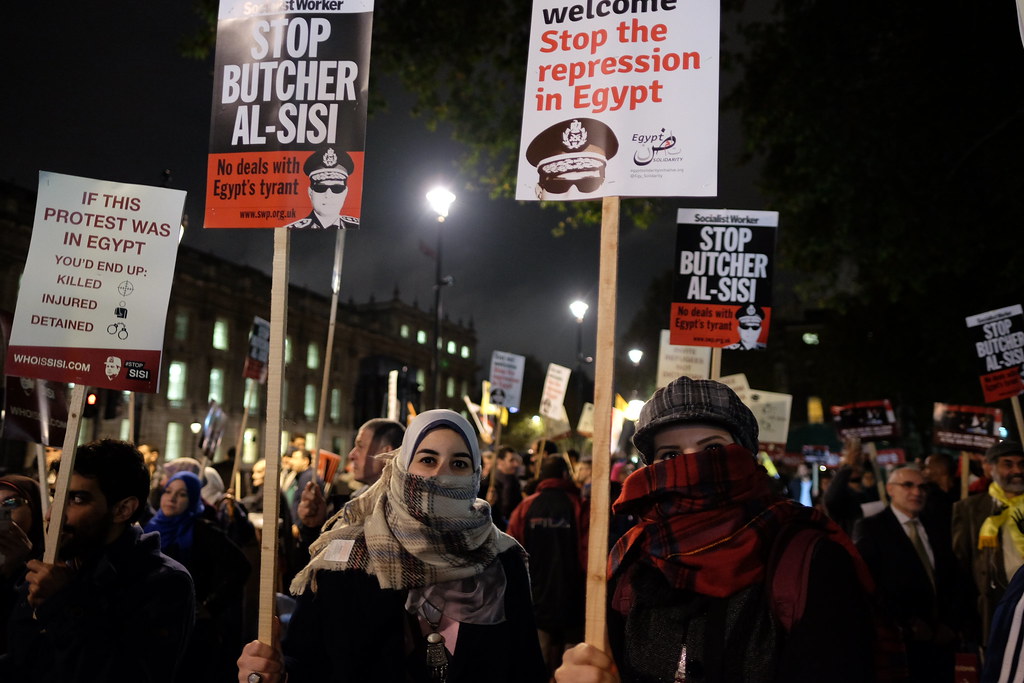In an open letter, Egyptian and international civil society organisations have called on the UN Human Rights Council (the Council) to adopt a resolution on the human rights crisis in Egypt, warning that repression and impunity in the country are deeply undermining efforts to address corruption, inequality, ecological destruction, and larger social injustices.
“The government of Abdel Fattah al-Sisi prefers to silence criticism of its corrupt, iron-fisted rule rather than take serious steps to ensure real reform. This approach is leading Egypt toward disaster,” said Jeremie Smith, Director of the Geneva Office of the Cairo Institute for Human Rights Studies (CIHRS).
Economic experts have increasingly raised concerns that Egypt is on the brink of an economic “abyss” due to corruption, cronyism and government mismanagement. Meanwhile, UN human rights experts have repeatedly and urgently warned that the human rights situation in the country continues to deteriorate.
According to the letter, “As witnessed by the world during COP27, the brutal crackdown on civil society in Egypt continues to intensify.” The Egyptian authorities have detained “tens of thousands, including hundreds of human rights defenders, activists, political opponents and journalists, while systematically resorting to enforced disappearances and torture.”
The well-known case of British-Egyptian democracy activist and blogger Alaa Abdelfattah is emblematic of this abusive pattern. Abdelfattah is currently serving a five-year sentence for allegedly “spreading false news.” He has also been charged with terrorism related offences and did not receive a fair trial. United Nations experts have sent six communications regarding Abdelfattah’s case to the Egyptian government where they set out profound concerns regarding his multiple arrests, detention, sentencing in absentia, ill-treatment while held in Tora prison, and prolonged pre-trial detention.
Sanaa Seif, the sister of Alaa Abdelfattah, said: “The freedom of tens of thousands of Egyptian prisoners, including my brother’s, depends on entities like the UN Rights Council taking concrete action. Governments who believe in human rights must lead in this effort, and ensure the UN stops turning a blind eye to brutal repression.”
The letter points out that while previous action at the Council “had direct impact,” playing a critical role in securing the release of some political prisoners and leading to the issuance of a national human rights strategy, the Egyptian government has failed to implement almost all the promises and commitments it has made concerning human rights reform.
Download as PDF




